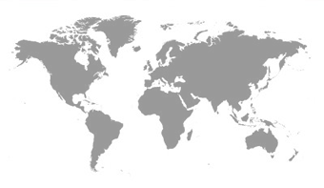Kangaroo meat scandal
Namibia -- The supply of Namibian meat products blended with imported kangaroo meat to a number of State hostels in Namibia has raised alarm among local meat producers and the Tender Board of Namibia.
A Ministry of Education official in the hostels division this week also stated that the use of kangaroo meat to supply State institutions was in contravention of the specific tender regulations.
Calle Schlettwein, Permanent Secretary in the Ministry of Finance and a member of the Tender Board, said yesterday that the Tender Board would immediately start investigating allegations of the use of kangaroo meat in products supplied to State hostels.
He added that the tender regulations are clear on the types of meat catering companies may supply to hostels. "Everything must be sourced locally," he said.
Capital Meat CC, which supplies one of the hostel caterers, has imported 100 tons (100 000 kg) of kangaroo meat into Namibia since August 2009, according to the Otjiwarongo State Veterinarian’s Office.
An import permit in possession of The Namibian confirms that Capital Meat purchases the meat from an Australian company, Marco Meats.
Atlantic Food Services, which supplies food to hostels in Oshana, Omusati, Ohangwena and Oshikoto, buys some of its meat supplies from Capital Meat.
Yesterday Trevor Morris, Atlantic Food Services purchaser, said it is "preposterous" that Capital Meat would supply them with meat products mixed with kangaroo meat.
However, Johan Burger of Capital Meat contradicted Morris, saying "everyone is aware that we use kangaroo meat from time to time if we do not have enough local game meat".
Confirming that kangaroo meat is used, Burger said it is used to "thin out" fatty beef during the processing of the meat into mince.
He also confirmed that one of the companies supplied with meat is Atlantic Food Services.
The addition of any imported meat is prohibited in the tender for the supply of meat products to hostels.
The tender regulations for the supply of meat products to State hostels state that "meat shall be sourced from local producers in the various regions as far as reasonably possible" and the "mince meat shall be 100 per cent pure beef or venison."
Tender regulations for catering services furthermore stipulate that the venison that may be used is restricted to springbok, kudu, gemsbok and eland.
Burger said it is no secret that kangaroo is used in meat products supplied to buyers and Morris is aware that Capital Meat mixes kangaroo meat into "all of its meat products when it is necessary".
He confirmed that Capital Meat sells meat products to local and foreign buyers. He said when there is not enough local game to use as a thinning agent in fatty beef, he has to use imported game. Burger said the beef he uses is locally bought from Meatco.
Morris said yesterday that he was aware that the beef is sometimes mixed with game, but according to his knowledge the game used by Capital Meat complies with tender regulations.
Morris said Capital Meats is "essentially a huge company whose main partner is Blaauwberg Meat Wholesalers".
Blaauwberg is a meat wholesaler based in South Africa, but with various links to the Namibian meat industry.
Morris said the beef in the sausages and mince bought from Capital Meat contains Namibian beef sourced from Namibian farms owned by Blaauwberg.
Morris also said that the Ministry of Education’s inspectors are fully licensed to inspect suppliers at any time, and that inspections are conducted on a regular basis.
According to State veterinarian Dr Alec Bishi, kangaroo meat is mostly "sold as mince meat" in Namibia and it "qualifies as game meat".
In August 2009, the Namibian Meat Board sent a letter to the Tender Board, requesting a list of the companies that had won tenders to supply meat products to State institutions.
The letter stated "that the Meat Board is confronted with complaints that the Government tenders for meat and meat products are issued to companies that instead of procuring the products from within Namibia, are importing them into the country from outside".
The Meat Board said it would "like to engage these companies to find out where they source their products".
Tags · Kangaroo meat scandal
This article hasn't been commented yet.


















Write a comment
* = required field